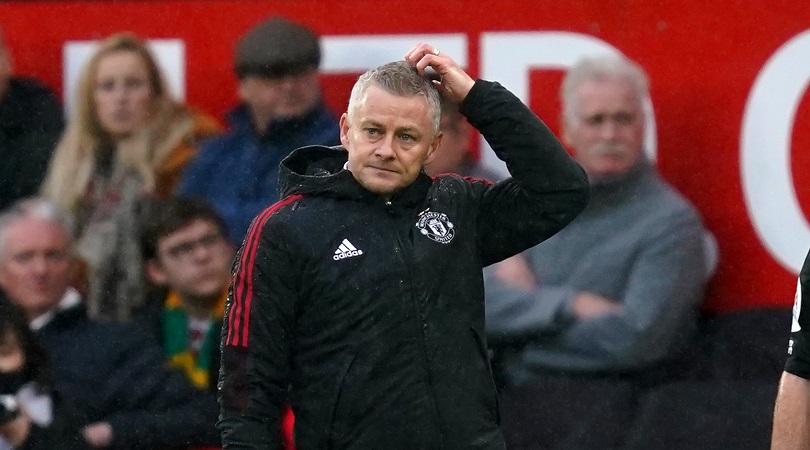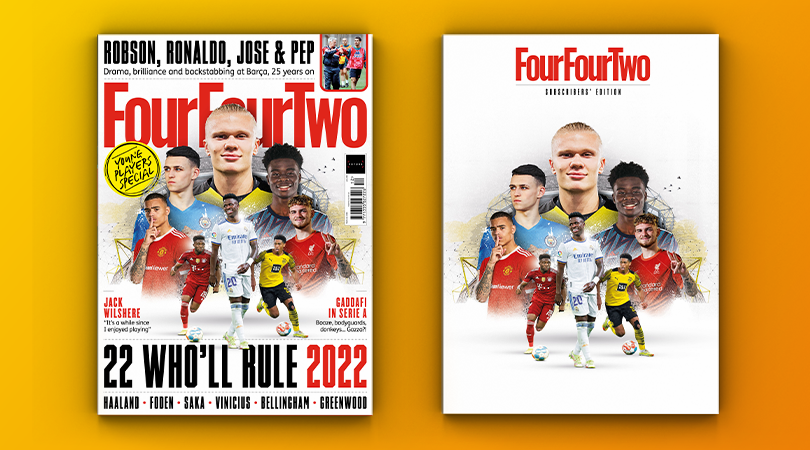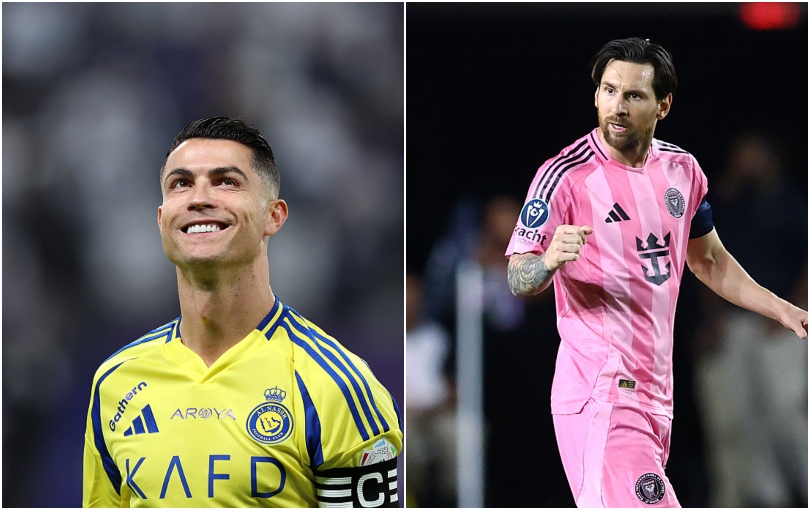How the Manchester United "myth" cost Ole Gunnar Solskjaer his job
A reliance on a Manchester United dream that doesn't really exist proved Solskjaer's downfall at Old Trafford

Ole Gunnar Solskjaer’s final interview as Manchester United manager was actually his first interview after he was no longer Manchester United manager. He was true to himself to the last, eulogising the club, referencing “the Manchester United DNA.”
Few are likelier to believe that is something scientists can prove exists than Solskjaer, a diehard believer in the mythology and magic of Manchester United even when losing 4-1 to Watford. United DNA proved unable to halt Liverpool when they won 5-0 or Manchester City when they passed their neighbours off the pitch at Old Trafford.

But if this has been a dreadful campaign so far for United’s class of 2021/22, it has also been an awful one for their predecessors. Their most cherished beliefs have been attacked on a weekly basis. Solskjaer’s recent failure has been the failure of the United punditocracy who couldn’t bring themselves to ever fault a fellow Old Trafford old boy. If part of that was based on friendship, rather than actual analysis, it reflected a shared faith in the innate superiority of Manchester United.
A sense United were automatically better may have been ingrained in an era when they usually were. But as the last eight-and-a-half years show, it is not a permanent state of affairs. United’s pre-eminence was only a self-perpetuating phenomenon under two great managers, Sir Matt Busby and Sir Alex Ferguson. It did not stem simply from being United and reinforcing that with reminders all of all things United, staffed by people with a grounding at United and then adding more. Open a cupboard at Carrington and there is a chance that David May or Clayton Blackmore will fall out, but it isn’t a formula winning anything.
BLACK FRIDAY Save 50% on a mag subscription as part of our Black Friday offer.
Solskjaer’s United ended up relying on their very Manchester Unitedness to cancel out the clear difference in pedigree and coaching skill to Pep Guardiola, Jurgen Klopp and Thomas Tuchel. Ultimately, unsurprisingly, it didn’t. Their setbacks were explained and excused by people who refused to countenance the idea that a group of their former team-mates, each with their hundreds of United appearances, were reasons for defeats, not innocent victims of them. Gary Neville’s infamously illogical argument that United had tried world-class managers and they failed lent itself to his idea that United were best off with their own. Which, in turn, reflects a feeling United is best.
That is natural to some extent. But while United have a more glorious, and tragic, history than most, a bigger fanbase than virtually any other, a past littered with great players and a trophy collection that is only rivalled by Liverpool in England, in other respects they can resemble other clubs. Some people at Old Trafford are good at their jobs. Some aren’t. Some decisions were justified. Some weren’t. They have had golden times, but also fallow spells.
Get FourFourTwo Newsletter
The best features, fun and footballing quizzes, straight to your inbox every week.
They may stand for more than most clubs but a fondness for youth, homegrown players and attacking football, while all admirable, are hardly exclusive. They don’t have as distinct a style of play as Barcelona, which may actually necessitate an insider. Ferguson’s primary philosophy was winning and he was extremely good at it. But it has not been transposed to United after his departure, or to his former charges in management, or indeed when one took over at Old Trafford. He was a unique force.
Neville used to argue United were not a sacking club (Salford City, incidentally, are) without acknowledging the main reason was that, for the last 23 years of Ferguson’s marathon reign, they never had to be, just as they didn’t need to be during Busby’s era. United may be a club with two astonishing reigns interrupting periods of underachievement, rather than an ethos in itself. An attempt to turn their traits into something bigger and broader can feel misguided. Solskjaer saw his side’s comebacks as part of United’s traditions without realising that these days few elite sides go behind as often.
Solskjaer’s apologists were sometimes right in blaming the Glazers, Ed Woodward and the current squad. But their idealised view of United, and their reluctance to accept someone who was there in the glory days was part of the problem, illustrated the sense that their answer to everything was more United. Which, in a way, they now have. Solskjaer’s infectious enthusiasm and love of the club actually made him well-equipped to be the caretaker manager. Now that is Michael Carrick, whose playing days featured both boom and bust and which may give him a greater realism and less romanticism. Perhaps his past will spare him criticism from his old colleagues but any honest appraisal requires the recognition that United need less United, not more. After all, Busby and Ferguson arrived as outsiders, not as proof of United’s natural superiority.
Subscribe to FourFourTwo today and save 50% as part of our Black Friday offer.
Restock your kit bag with the best deals for footballers on Amazon right now
ALSO READ
LIST Football Manager 2022: All the FM22 wonderkids you'll need to sign
Richard Jolly also writes for the National, the Guardian, the Observer, the Straits Times, the Independent, Sporting Life, Football 365 and the Blizzard. He has written for the FourFourTwo website since 2018 and for the magazine in the 1990s and the 2020s, but not in between. He has covered 1500+ games and remembers a disturbing number of the 0-0 draws.

